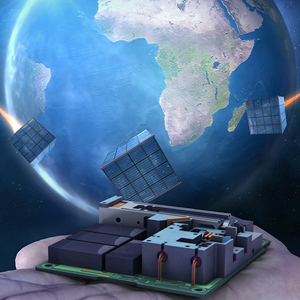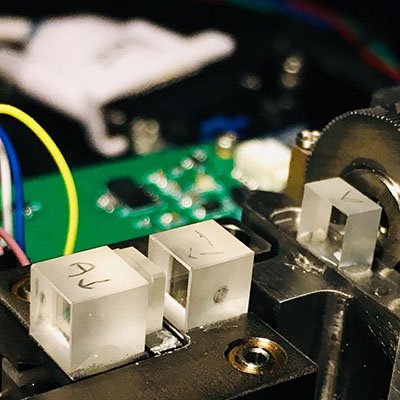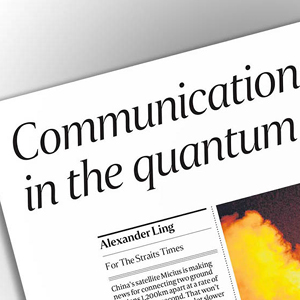Highlights
Singapore and UK collaborate on S$18m project to develop quantum-secured communications networks
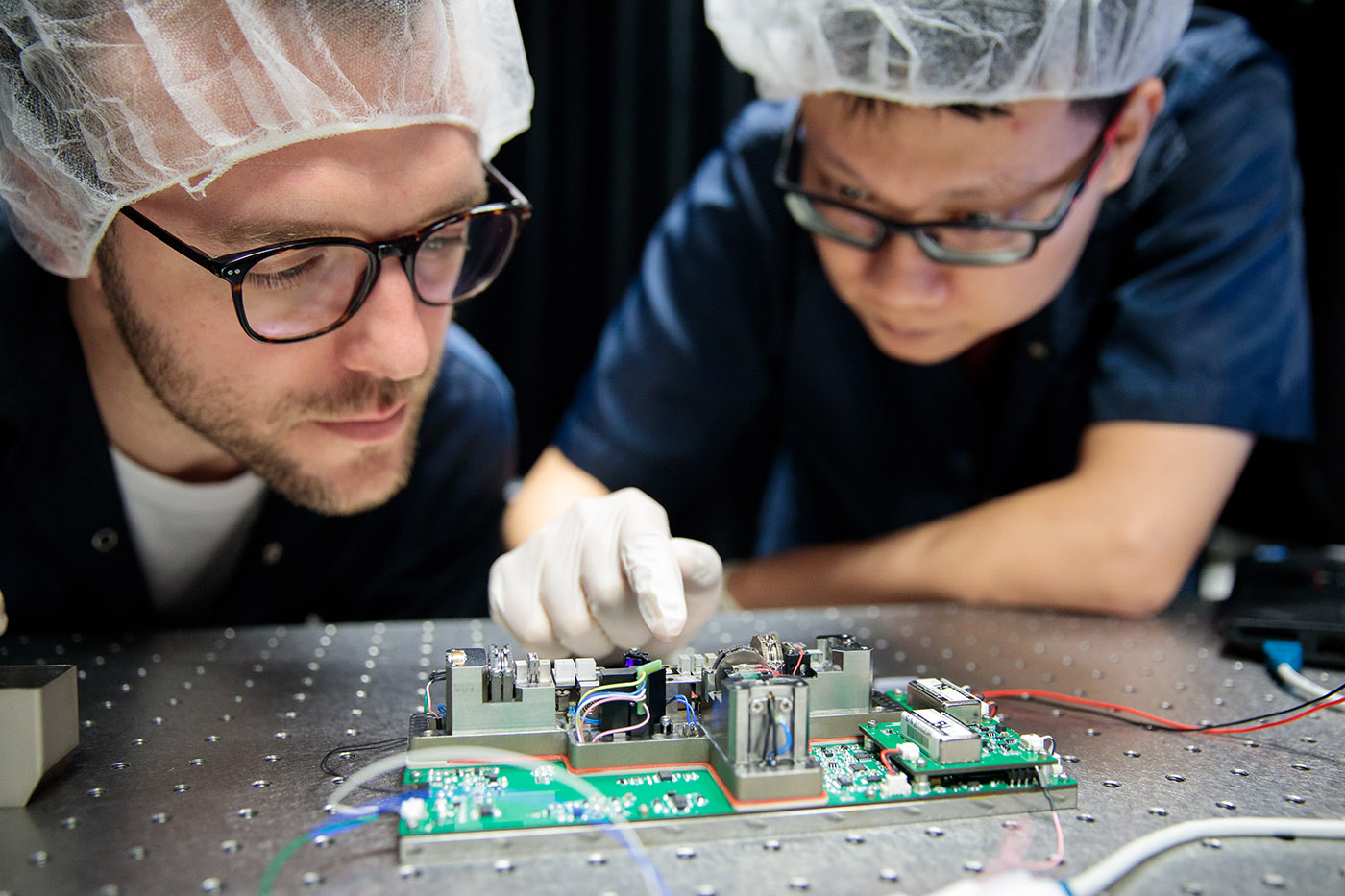
Researchers at the Centre for Quantum Technologies in Singapore have expertise in building rugged and compact QKD instruments for spaceflight.
Early demonstration of new quantum technologies deployed in space, through the latest collaboration between the UK and Singapore governments, could lead to more secure online activity for consumers in everything from financial transactions to online conversations.
The S$18 million initiative between the Singapore and UK governments will build and deploy a satellite quantum key distribution (QKD) test bed. Under the collaboration, Singapore and UK will co-develop a 'QKD Qubesat', a satellite based on the CubeSat standard that will use a pioneering QKD technology from Singapore to test the secure distribution of cryptographic keys over globe-spanning distances. The satellite is expected to be operational in late 2021.
Satellite-based QKD is emerging as an unbreakable encryption technology, far more secure than existing encryption techniques. If successful, this new joint quantum technology satellite mission will open access to a global market estimated to be worth up to S$20 billion over the next decade. It builds on both countries’ efforts to grow the space and quantum technologies sectors to venture into the emerging QKD market.
In Singapore, work will be led by the Centre for Quantum Technologies (CQT) at the National University of Singapore (NUS), which will contribute its expertise in the building of rugged and compact QKD instruments suitable for deployment in space. In the UK, work will be led by the Science and Technology Facilities Council’s (STFC’s) RAL Space, which will contribute its expertise in innovative space technology and optical links needed for beaming QKD signals.
The Principal Investigators for the project are CQT's Alexander Ling, also an Associate Professor in the NUS Department of Physics, and Andy Vick, Head of Disruptive Space Technologies at the UK's RAL Space. Christian Kurtsiefer, Principal Investigator at the Centre for Quantum Technologies and Professor in the NUS Department of Physics, is a co-PI on the project.
Existing systems to facilitate the secure electronic transfer of information are becoming increasingly vulnerable. The public key algorithms that handle the secret keys to lock and unlock encryption will be easily broken as quantum computers come into use. These systems currently underpin the security of 99% of the world’s data communications from mobile banking and payment systems to smart home devices.
Satellite-based quantum key distribution is a fundamental enabler of the next generation of secure communication networks. QKD provides an alternative that can be seamlessly integrated onto the network systems we already use. It is resistant to all known computational attacks, including from future quantum computers. A space-based QKD system will ensure security over national and international distances, at a lower cost to the alternative, ground-based fibre infrastructure for quantum-communications. By ensuring the secure distribution of cryptographic keys over globe-spanning distances, this space-based technology delivers ultra-secure, long-range communications capability at a level that cannot be achieved with ground-based fibre infrastructure.
On this new collaboration with the UK, George Loh, Director, Programmes at the National Research Foundation (NRF) in Singapore said: “Singapore has developed deep research capabilities in quantum technologies through our past investments in the Centre for Quantum Technologies. Singapore and UK share the same outlook to leverage research & innovation to develop capabilities and derive benefits for our respective countries. This collaboration with UK is significant for both countries, in bringing together our experts to demonstrate satellite-based QKD communication capability. Singapore will also bring in local companies to develop and commercialise products and services in the QKD market, as well as other forms of space and quantum technologies.”
Artur Ekert, Director of CQT said: “Having access to quantum-secured communication is a smart step for cybersecurity. We already have trials over fibre for secure communication within Singapore, building on CQT’s decade of development of this quantum technology. Reaching into space with our UK partner is a strategic move towards global data security.”
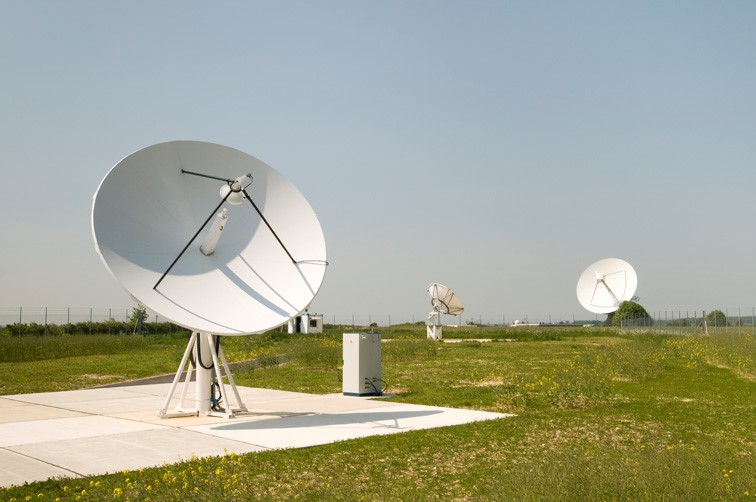 The task in a satellite QKD mission is to send quantum signals at the single photon level between an orbiting platform and a ground receiver. The ground receivers pictured are the STFC RAL Space Ground Station at our Chilbolton Observatory site. Image: STFC RAL Space
The task in a satellite QKD mission is to send quantum signals at the single photon level between an orbiting platform and a ground receiver. The ground receivers pictured are the STFC RAL Space Ground Station at our Chilbolton Observatory site. Image: STFC RAL Space
Chris Mutlow, Director of STFC RAL Space said: “As the UK’s national laboratory for innovative space technology development, this is exactly the kind of mission we are here for. Alongside our international partners, we will provide a vehicle for technology readiness-raising and rapid space qualification of quantum technologies. This mission puts the UK ahead of our competitors in quantum communications. It will enable the space sector to tap into new manufacturing and export opportunities that will help the UK achieve its ambition of capturing a 10% share of the estimated £40 billion global space market by 2030.”
The Singapore and UK teams will work with academic and industry partners to help support future development of commercial products and services. In Singapore, SpeQtral, a company spun out from CQT, aims to provide QKD hardware and other quantum-safe solutions. CQT already collaborates with telecommunications companies, such as Singtel, to bring QKD communication technologies to market. RAL Space will be working closely with the UK telecommunications and service sector, including BT and Arqit Ltd., to prepare for the inclusion of quantum communication into mobile and static applications. RAL Space is collaborating with the UK’s National Quantum Technology Programme to develop space applications of quantum technologies.
Text adapted from the NRF press release and updated to reflect a change in the name of the spin-off SpeQtral from S-Fifteen.



